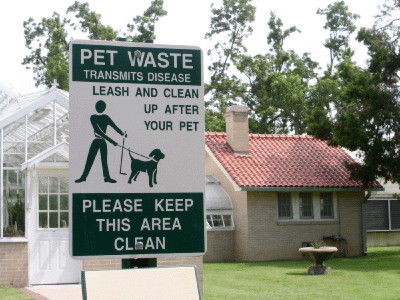It is pointed out that the prosecutor has created a 'unique DNA database' by proposing a judicial transaction to a person who committed a misdemeanor.

OC Prosecutors Operate Vast Genetic Surveillance Program
https://theintercept.com/2021/07/03/orange-county-prosecutors-dna-surveillance/
A few years ago, a colleague of William Thompson , an emeritus professor of criminology and law at the University of California, was summoned to court for 'walking a dog without a lead.' Sure, it's against the law to walk a dog without a lead in Orange County, but it's a misdemeanor, and my colleagues thought they would only pay a $ 100 fine in court. However, a colleague was told by the prosecutor that he had to provide a DNA sample instead of making no misdemeanor, so he offered a saliva sample instead of a fine.
According to Thompson, it is common in Orange County for prosecutors to bargain on suspected misdemeanors and collect DNA samples. Some went to court with the intention of paying a $ 100 fine for possessing cannabis, and were threatened with 'if you don't agree to give them a DNA sample, you'll raise your charges to'possessing cannabis for sale'.' There are also, Thompson said.

The prosecutor's collection of DNA samples is said to have been triggered by the Orange County District Attorney's Office in 2007 when it began creating its own DNA database.
Many states have their own restrictions on the collection of DNA in collaboration with CODIS, with 31 states permitting DNA collection from arrests as of 2018, 29 of which are serious, such as rape and murder. Collection is permitted only in cases. Meanwhile, the state of California is subject to DNA collection under the 'DNA Fingerprint, Unsolved Crime and Innocence Protection Act' passed by a referendum in 2004. Not only has the crime been greatly expanded, but it has become possible to collect crimes that are not originally subject to DNA collection as a condition for judicial transactions.
So in 2007, the Orange County District Attorney's Office submitted an ordinance to create its own DNA database focused on misdemeanors. Instead of sharing the DNA database with CODIS, the ordinance allowed DNA to be collected through misdemeanor and plea bargaining, as well as from suspects in cases that prosecutors decided not to prosecute in the first place. ..According to a former prosecutor who spoke with Andrea Ross , a law professor at the University of California , Tony Rackauckas , a district attorney for Orange County in 2007, said, 'The locals who have committed trivial crimes are the most violent. He said he was thinking, 'I will commit a crime.' In other words, Orange County's DNA database was based on a kind of broken windows theory, which states that it is possible to deal with violent crimes by strictly dealing with minor crimes. In the end, the ordinance was unanimously passed by the governing board.

When Mr. Ross actually confirmed how the prosecutor in Orange County collects DNA, he said that the prosecutor had offered the DNA before the accused pleaed the crime. The prosecutor tells the accused, 'If you provide the DNA, treat it as a judicial transaction or dismiss the case,' and if the accused agrees, wipe the inside of the cheek to collect the DNA and collect the DNA from the database. I was collecting $ 100 to fund the. According to Ross, as of 2019, the Orange County District Attorney's database stores the DNA of more than 200,000 people, collecting $ 11 million annually.
The accused was also forced to sign a contract waiving his right to challenge the constitutionality of DNA collection and demand the erasure of DNA data. In CODIS, DNA data is deleted even if the criminal arrested in the murder case is later found to be innocent, but in the case of the Orange County District Attorney's Office DNA database, even those who are minor offenses and whose charges have been withdrawn as a result. Unable to request deletion of DNA data.
Theoretically, even if you can refuse to collect DNA by a prosecutor, it would be a huge burden to actually refuse to provide DNA, hire a lawyer, and be tried in court, so there are not many options to refuse. Not realistic. Such a situation has an unequal adverse effect on people who lack the resources and knowledge to protect themselves, such as low-income earners and people of color, and conversely, 'focus on cracking down on misdemeanors to enhance the DNA database.'

In February 2021, Thompson and Cole filed a civil suit in the Orange County Civil Court to challenge the creation of the Orange County District Attorney's DNA database. The proceedings have stopped the DNA database and demanded that people return the amount they paid to fund the DNA database. The complaint also stated that '(the Orange County District Attorney's DNA database) permanently undermined the genetic privacy and constitutional rights of the misdemeanor defendant, while there was little positive agreement with the crime that occurred.' Claims that the DNA database effort has failed.
In response to the proceeding, Todd Spitzer , a local prosecutor in Orange County, said in an opinion piece in April that the Orange County District Attorney's DNA database had resolved a case that would not have been possible in the past. Counterargument. However, according to a 2018 report, only 0.67% of the DNA collected by the Orange County District Attorney's Office matched the DNA collected from the crime scene, most of which were crimes such as nonviolent theft. It was. In addition, Mr. Spitzer defeated Mr. Luckaukkas in the election in 2018 and became a district attorney, but until then it seems that he was critical of the DNA database of the Orange County District Attorney's Office.
Ross is concerned that the Orange County District Attorney's DNA database will bring more people under the control of the criminal law system without resulting in public security benefits, and the operation of the database will be a black box. I also consider the point that it is a problem. 'The bigger question is whether the Orange County District Attorney has restrictions on the uses of DNA data,' Ross said, adding that DNA data could be used for purposes other than criminal investigations in the future. Claimed to be.
Related Posts:
in Note, Posted by log1h_ik







